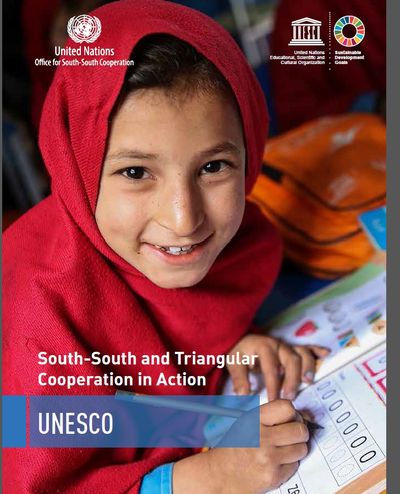
UNESCO and Italy to create task force for cultural heritage conservation in crises – The United Nations Educational, Scientific and Cultural Organization (UNESCO) plans to sign an agreement with the Government of Italy tomorrow to establish a task force of experts focusing on the conservation of cultural heritage affected by crises around the world.
In the framework of UNESCO’s global coalition Unite for Heritage campaign launched this past year, under the agreement the agency will be able to ask the Italian Government to make the experts available for deployment on matters related to the conservation of cultural heritage in crises, UNESCO Director-General Irina Bokova said in a press release.
“The agreement is a major and innovative step in our effort to gain recognition for the importance of cultural heritage in cementing identity, building social cohesion and fostering resilience in times of crisis,” Ms. Bokova said.
“The establishment of a Task Force bringing together cultural heritage experts and the Italian Carabinieri force specialized in the fight against the illicit trafficking in cultural property will enhance our capacity to respond to future emergencies,” she added.
Expressing hope that other countries will take similar steps to reinforce the international community’s ability to respond to the growing threats facing cultural heritage in different parts of the world, Ms. Bokova stressed that the establishment of the task force directly implements the strategy adopted by Member States at UNESCO’s general conference this past November.
The strategy sets out to reinforce UNESCO’s action for the protection of cultural heritage and the promotion of cultural diversity and pluralism, and calls on Member States to contribute to the strategy, notably through mechanisms for the rapid deployment of national expertise in emergency situations under the agency’s overall coordination.
Member States developed the strategy in response to the recent large-scale, systematic destruction and looting of cultural sites and attacks on cultural diversity and cultural and religious minorities infringing on their human rights and security.
Under the Rome Statute of the International Criminal Court (ICC), the deliberate destruction of cultural heritage may be considered a war crime. The reinforcement of UNESCO’s capacity to respond to current challenges builds on existing international legal instruments, notably the 1954 Convention for the Protection of Cultural Property in the Event of Armed Conflict, and enhances the scope of their application.
“The Nigerian authorities are legally obliged under international human rights law, in particular under the Convention on the Rights of the Child, which it has ratified, to take all necessary steps to respect, protect and fulfil the right to life of children, as well as ensuring their right to safety and security which among others, entails protecting them from violence, intimidation, sexual abuse and slavery,” Mr. Mezmur said on behalf of the Committee.



